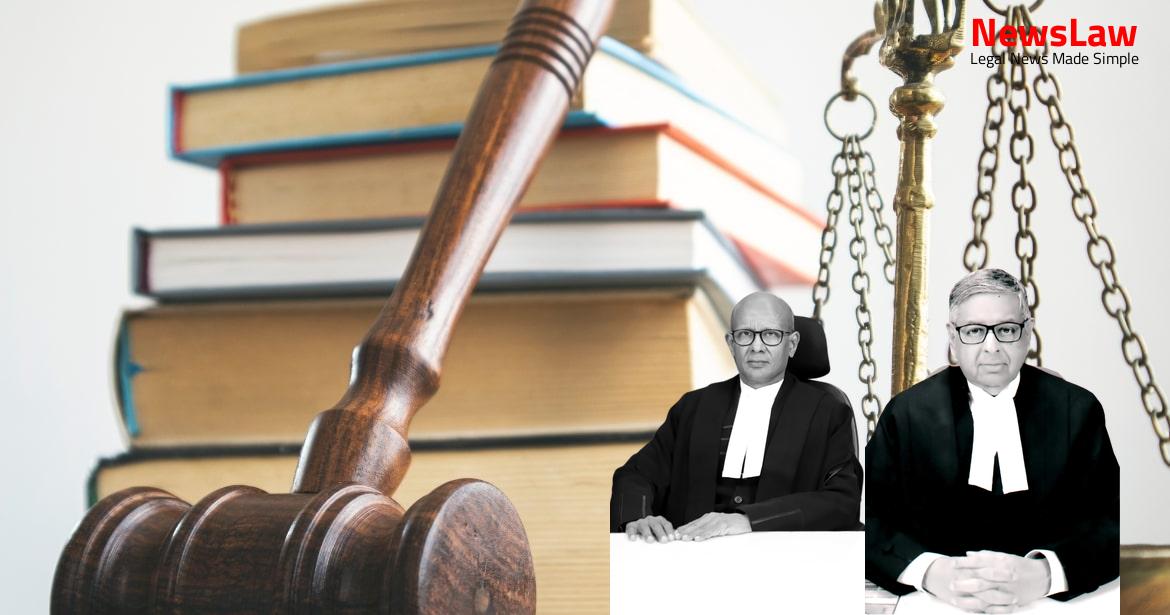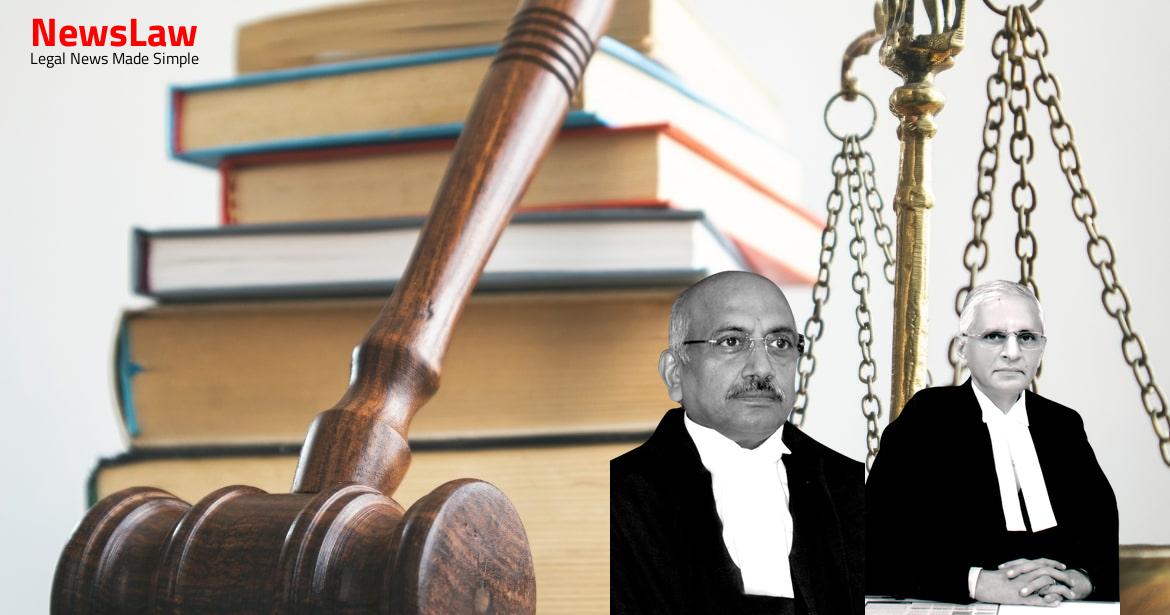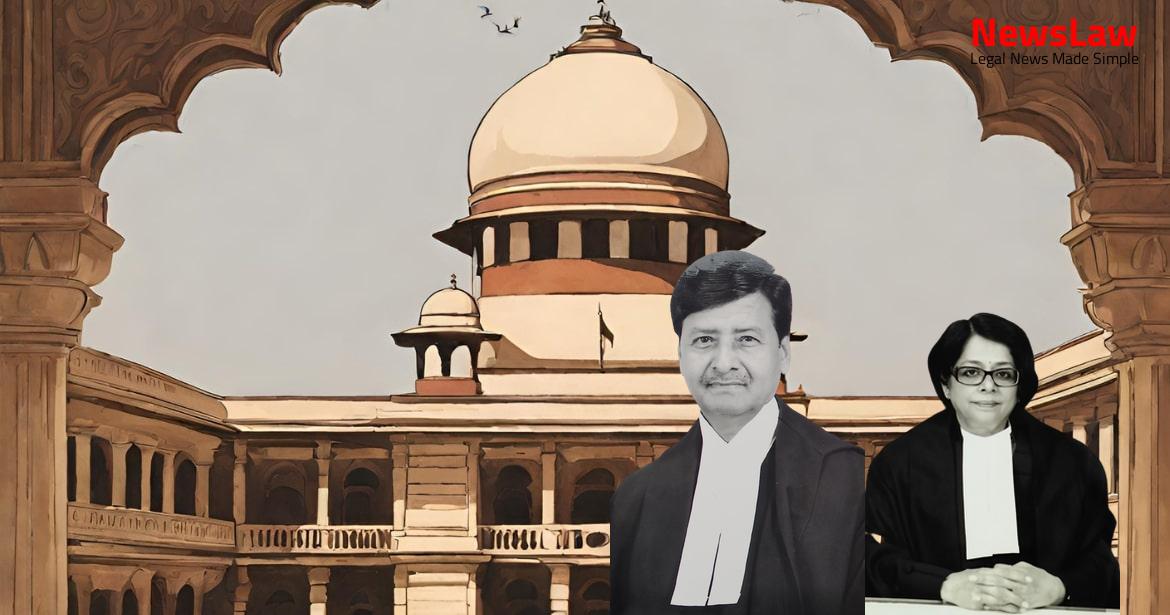In the case of Chandu v. Sankaran, a complex legal dispute unfolded over property rights. Chandu, the plaintiff, filed a suit for partition claiming shares in the property against the successors-in-interest of Sankaran, the respondent. The case delved into the intricacies of inheritance, remarriage implications, and the validity of lease deeds. Despite initial rulings, the High Court’s decision, influenced by key deeds including Exhibit A-20 and precedents like Sivaprasad v. Venkateswaralu, took a surprising turn. Dive into the details of this gripping legal saga.
Facts
- Thiyyer Kunnath Meethal Chandu filed a suit for partition claiming 8/20 shares in the suit property
- The suit property is described as ‘Kizhake vattakkandy enha Pattayathil perulla Asarikandy pasramba, 6 feetinu ki-pa 37, the-va 35’
- The appellants in the appeal were the defendants in the suit and are successors-in-interest of Sankaran
Also Read: Laxmanrao vs. Vitthalrao Legal Case
Arguments
- The right of a widow to hold the property was recognized by the Hindu Women’s Right to Property Act, 1937.
- On Madhavan’s death before 1910, his rights devolved on Sankaran, not on Chirutheyi as per the personal law applicable to the parties.
- Chirutheyi’s rights may have been lost due to her remarriage with Neelakantan under the Hindu Widows Re-marriage Act, 1856.
- The contention put forward by the learned counsel for the respondents deserves acceptance.
- The counsel relied on the decisions in Sivaprasad V. Venkateswaralu : 2000 (1) KLT SN 11(SC) and Dharmarajan V. Narayanan: 2000 (2) KLT 895.
Also Read: Sonai Election Dispute: Karim Uddin Barbhuiya Vs. Aminul Haque Laskar
Analysis
- Chiruthey contracted a second marriage after the death of her first husband Madhavan, causing her title over the suit property to lapse as per Section 2 of the 1856 Act.
- Various deeds were executed post-1900, including Exhibit A-20, which was a Kannan Kuzhikanam deed, and Exhibit A-1 and A-2 related to Verumpattam Kuzhikkanam deed and assignment of rights respectively.
- The High Court primarily relied on these deeds to support Chandu’s claim through Chiruthey despite her loss of title due to the remarriage.
- Chiruthey’s rights over the property were questioned due to the remarriage and provisions of the 1856 Act.
- Validity of the lease deeds and the rights derived from them were upheld by the High Court, despite inheritable rights being extinguished by the remarriage.
- The successive deeds indicated a transfer of rights from the original owners Nangeli and Sankaran to Chiruthey, deemed valid due to lack of challenge during the trial.
- The Court’s analysis highlighted that despite Chiruthey’s limited rights as a lessee, she could not convey more rights over the property than she possessed.
- The transactions involving Exhibit A-20 were considered legally sound since the actual owners Nangeli and Sankaran were involved in the conveyance.
- The High Court’s judgment was based on the validity of specific lease deeds, leading to the restoration of the Trial Court’s decision in favor of the plaintiff.
- The lease agreement for the suit property (Exhibit A-1) had a stipulated term of twelve years and there is no indication that it could extend beyond that.
- The ownership of the property did not pass on to the original plaintiff who was born to Chiruthey and Neelakandan.
- After 1910, the plaintiff’s status in relation to the property was that of a lessee.
Also Read: Case Summary: Discharge of Offence under IPC Sections 420 and 120B
Decision
- The decision of the High Court is set aside
- The decision of the First Appellate Court is confirmed
- Pending applications will be disposed of accordingly
- The appeal is allowed
- Any interim order in place will be dissolved
- No costs are awarded
Case Title: KIZHAKKE VATTAKANDIYIL MADHAVAN (D) THR. LRS Vs. THIYYURKUNNATH MEETHAL JANAKI . (2024 INSC 287)
Case Number: C.A. No.-008616-008616 / 2017



